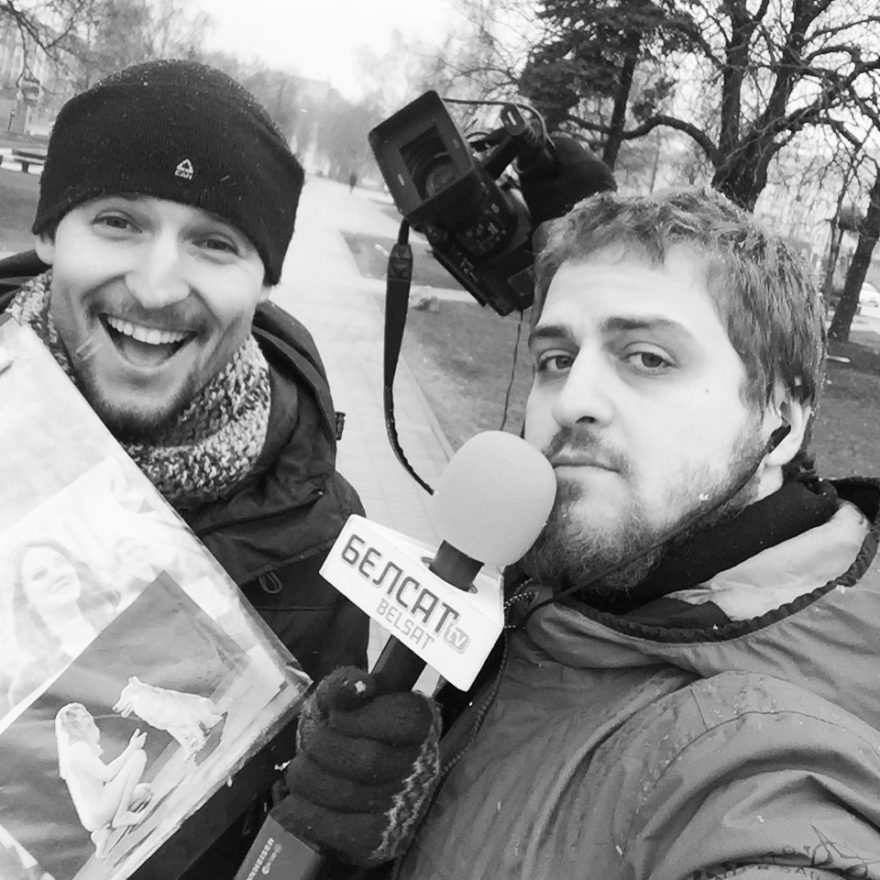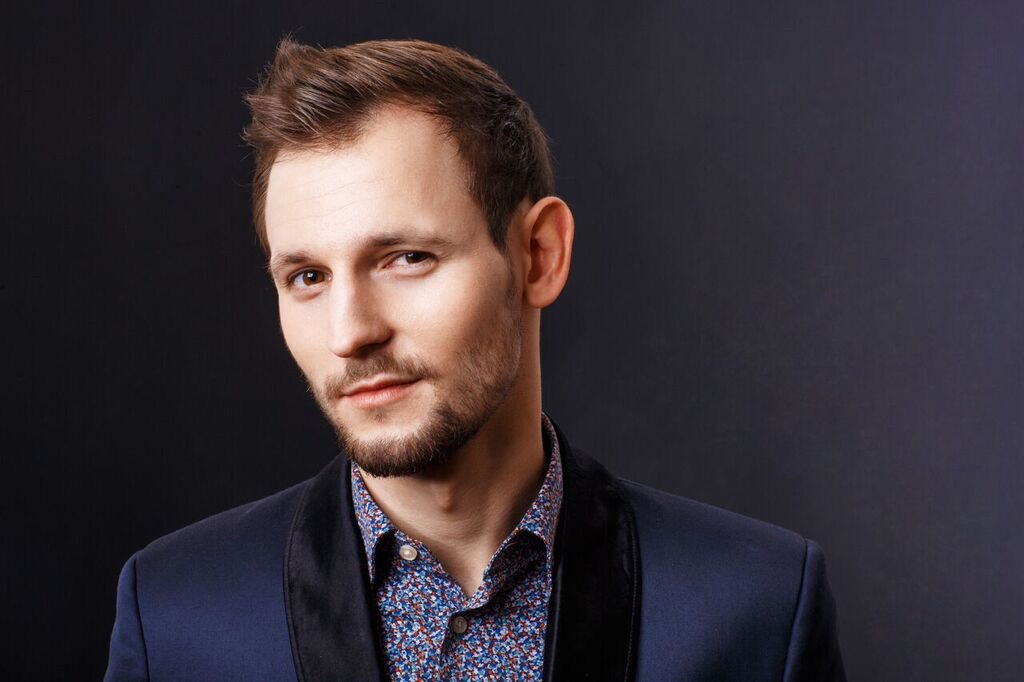“Word can start wars or make positive changes. I realized the power of mass media and decided to become a journalist”, says the 30 year old well known TV-reporter and LGBTI-activist in Belarus.
A carreer in TV is a dream job for many, but three grim facts about Belarus shows the great risks Oleg Rozhkov takes:
- Belarus’s press freedom score drops in 2018 after arrests of more than 100 journalists
- Belarus’s democracy score drops in 2018 after repressive measures to stem social protests
- Belarus is one of the worst places in Europe to be gay, lesbian, bisexual, trans and intersex
“Better to be dictator than gay”
To briefly recap blows against democracy in the state called “the last dictatorship in Europe”: Critical voices, including journalists and human rights activists are regularly arrested. Last year the police detained 700 journalists, activists and other citizens. A few months ago the Government blocked two of the few reliable news websites.
“it’s better to be a dictator than gay”, is one of the most infamous quotes by President Alexandr Lukashenka. Gay clubs have repeatedly been raided, shut down and guests harassed. Amnesty reports an increasingly discriminatory environment for LGBT rights groups in Belarus.

The turning point
For Oleg Rozhkov, his country hit rock bottom as well as a turning point four years ago. Mikhail Pishcheuski, or Misha, a young gay man, was beaten to death outside a night club in Minsk.
He did not die in vain – for the first time homophobic hate crime could not be silenced in Belarus. The journalist convinced the family of the victim of the tragedy to speak out.
“For me it was personal since I met Misha’s parents and sister. They gave their consent to go public about what happened. Their story led to a broad public response.”
Misha did not die right away and a crowdfunding campaign to raise money for medical treatment was launched after the brutal attack.
“We were surprised to see money coming in from Belarus, Russia and Europe. Even if he passed away, there appeared a hope that something could be changed.” The attacker was later pardoned and released from jail but at least the tragedy raised valuable public awareness.
Despite the risks, more and more Belarusians refuse to be silenced on issues of sexual orientation and gender identity.
Google it!
“Internet is about to destroy the fences of fear that paralyzed our parents. Google-searches tell LGBT-teenagers that they are not perverts despite what authorities and other haters keep saying.”
Hate speech and propaganda face an increasing competition from real news and non-biased journalism in Belarus. Oleg Rozhkov has dedicated his life in fighting discrimination with facts and coordinates the human rights group “Journalists for tolerance”. The initiative aims at improving journalistic standards on issues related to the LGBT-community and other minority groups.
“Changing the way media covers different social groups will change public attitude towards these people for the better”, he says.
Despite positive signs, the political climate in Belarus is still hostile and people fighting against injustice take big personal risks. Being both gay and a journalist makes the situation even more dangerous for Oleg Rozhkov. He has been fearless and focused on doing the right thing since early childhood.
Internet is about to destroy the fences of fear that paralyzed our parents. Google-searches tell LGBT-teenagers that they are not perverts despite what authorities and other haters keep saying
Oleg Rozhkov
FSB-threats
He was born in the city of Homiel 30 years ago and was raised by his single mother.
Only 20 years old he was discovered and offered a job by the independent TV station Belsat. During a training course in Russia he realized that also the FSB had noticed his talents.
“Cooperate with us if you want to continue your studies, was the message. I didn’t accept their proposal. In fact it made it easier for me to choose journalism.”
Oleg Rozhkov accepted the offer from Belsat as a TV-correspondent in Minsk as well as taking the lead in moving Belarus in a more democratic direction. He joined a group of other young journalists, starting an antidiscrimination campaign, which later grew and became the influence human rights group “Journalists for tolerance”, an human rights group with an increasingly impact in the Belarusian society.
Standing together
“The LGBT topic is no longer being stigmatized by journalists and human rights defenders. They have come to realize that discrimination has one face and roots, and it doesn’t matter what groups it targets”, he says.
By acting together, the voices of vulnerable social groups have been strengthened. An antidiscrimination coalition has been founded to lobby the adoption of antidiscrimination legislation in Belarus. Working with international organisations, like the Norwegian Helsinki committee, is also vital, according to Oleg:
“ It is hard to overestimate the role of international human rights organizations in advocating for the equality and non-discrimination rights of LGBT-people in Belarus and globally.”
Coming out
Celebrities and other public figures in Belarus do not dare to step forward as LGBT persons in fear of ruining their careers. Oleg has decided to be open because he believes it’s the only way to make real changes.
“Going public pays off. It is important that real people appear in media to fight stereotypes and clichés about gays, lesbians, bisexuals, trans and intersex persons. More and more people in Belarus are coming out”, Oleg says.


